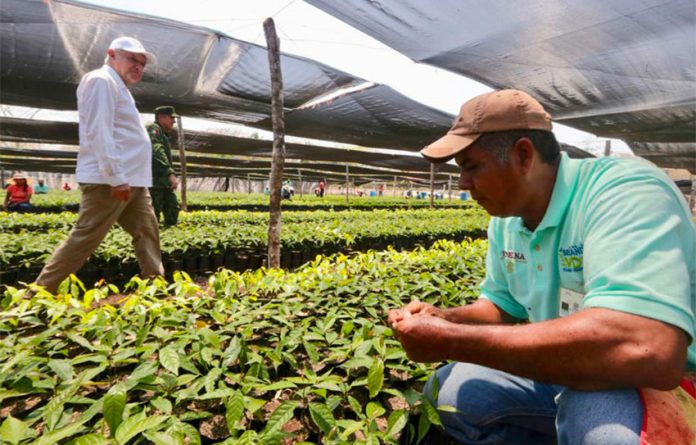Only half of 80 million timber-yielding and fruit trees planted during the first year of the federal government’s reforestation/employment program have survived, according to a report by the newspaper Reforma.
The government’s original aim was to have participants in the Sembrando Vida (Sowing Life) scheme plant 575 million trees in 2019.
But Welfare Minister María Luisa Albores, who is responsible for the program, said that only 80 million trees, 14% of the target, were actually planted.
Of that number, only half survived, Reforma said in a report published Tuesday. That means that only 40 million trees, or 7% of the total number that were supposed to be planted in 2019, are still alive.
An investigative report published in early June said the government’s tree-planting program is riddled with corruption and operational flaws.

Many of the identified flaws likely had a direct impact on a young tree’s ability to survive. They include the late distribution of saplings after the conclusion of the rainy season, a lack of water for irrigation, the provision of dead saplings, a shortage of supplies and tools and forcing program participants to plant on drought-stricken land.
Reforma said that a lack of supervision of participants and the payment of their monthly wages in advance were also factors in the low survival rate of newly-planted trees.
For its part, the government’s social development agency, Coneval, found that the Sembrando Vida program hasn’t followed a schedule in tune with agricultural cycles that would give young trees the best chance for survival.
Another operational flaw of the scheme is that the army, tasked with growing saplings at military nurseries, failed to supply the number of young trees expected of it last year. That was one factor that contributed to the program falling well short of its target.
“We made an agreement with 12 military nurseries for the production of 100 million plants in 2019. Then they told us there would be a reduction to 80 million. … [The] reality is that they delivered 37 million,” Albores said.
A researcher at the Chapingo Autonomous University in México state, which specializes in agriculture and forestry education, said the the target of planting hundreds of millions of trees in the space of a year was doomed to fail.
“Mexico has never had the capacity to produce the millions of plants the program promises,” Jorge Antonio Torres said.
Eraclio Rodríguez, a federal deputy with the Labor Party, said there are also question marks over how funds allocated to the Sembrando Vida program have been used.
“There is a lot of discretion in the application of the resources and to date they haven’t made the full register of beneficiaries public. We’ve asked for it but we’re never given information,” he said.
The president of the Mexican Network of Forestry Farming Organizations said last month that there is a lack of clarity with respect to how Sembrando Vida participants are selected. Gustavo Sánchez suggested that some of the participants – who are paid 5,000 pesos (US $220) a month – were selected by the government in exchange for support at the ballot box in upcoming elections.
Source: Reforma (sp)
